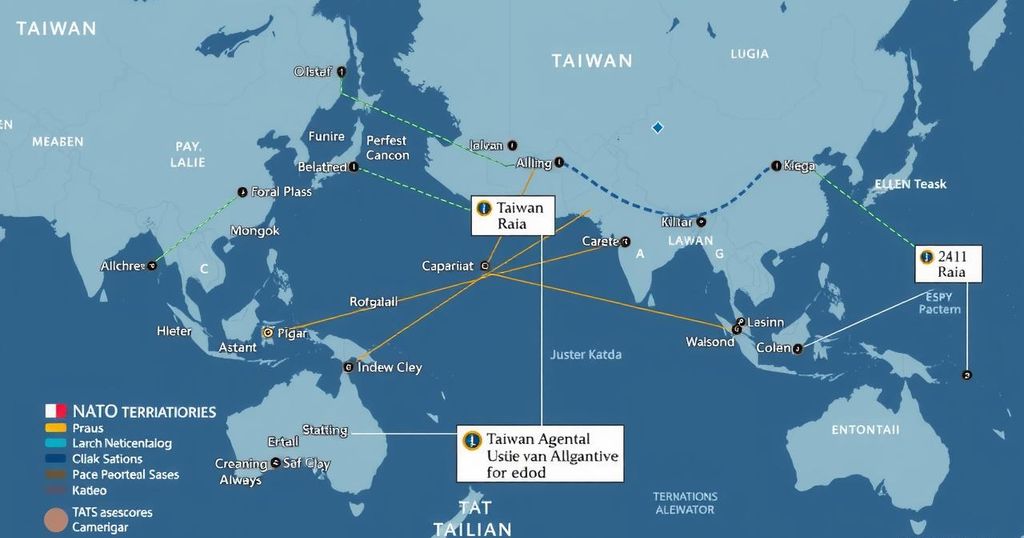How Russia Could Complicate U.S. Efforts to Defend Taiwan

- NATO warns of increasing cooperation between China and Russia.
- Rutte indicates Xi may communicate with Putin before Taiwan invasion.
- Chinese military pressure on Taiwan is at an unprecedented level.
- Ukraine claims Russian drones have significant Chinese components.
- U.S. officials predict China could attack Taiwan by 2027.
Growing Cooperation Between China and Russia.
In light of the increasingly complex geo-political landscape, the potential for collaboration between China and Russia poses significant challenges for U.S. defense strategies regarding Taiwan. NATO Secretary General Mark Rutte highlighted the growing cooperation between Beijing and Moscow, emphasizing that if China, under Xi Jinping’s leadership, decides to invade Taiwan, it is likely that a communication would occur between Xi and Putin. Rutte pointed out the critical need for a robust NATO response to deter such aggression, declaring that Russia, as a partner of China, could be inclined to distract the West by engaging NATO forces in a conflict.
China’s Pressure on Taiwan Increases.
There are indications that China may push Russia to act in its favor if an invasion of Taiwan becomes imminent, largely due to the support China has shown towards Russia in its ongoing war against Ukraine. Reports have surfaced suggesting that the Russian military is increasingly reliant on Chinese technology and supplies, with a recent analysis from GUR indicating that a significant portion of components in captured Russian drones originated in China. Meanwhile, U.S. military officials have raised alarms over the intensifying military pressure China has placed on Taiwan, with Admiral Samuel Paparo recently stating that the situation has reached a boiling point unseen in recent years.
Challenges for Russia and NATO Readiness.
Still, while the threat is palpable, some experts remain skeptical about the realistic possibilities of Russia engaging NATO in the near term. Ukraine’s Defense Intelligence Directorate chief, Lt. Gen. Kyrylo Budanov, expressed doubts regarding the timing of any coordinated aggression from Russia, stating that the scenario may be feasible at a later date rather than immediately. The reality is, Moscow is currently entangled in Ukraine and is enduring severe losses that complicate its ability to engage NATO forces effectively for several years to come. This sentiment is echoed by military assessments which suggest that Russia may not be fully capable of launching an attack on NATO until 2029 at the earliest, a timeline which aligns somewhat with U.S. evaluations forecasting China’s readiness to act against Taiwan around 2027.
In summary, the growing connection between China and Russia, particularly in light of the looming aggression toward Taiwan, presents a complex and concerning challenge for U.S. defense strategies. NATO Secretary General Rutte’s remarks highlight the need for vigilance and preparedness among alliance nations, as both military actions and support from China contribute significantly to the geopolitical tensions in the Indo-Pacific. As experts weigh the realities of a potential concurrent conflict involving both Russia and China, any U.S. response will have to confront not only the dynamic threat in Asia but also ongoing operations in Europe and the Middle East.








